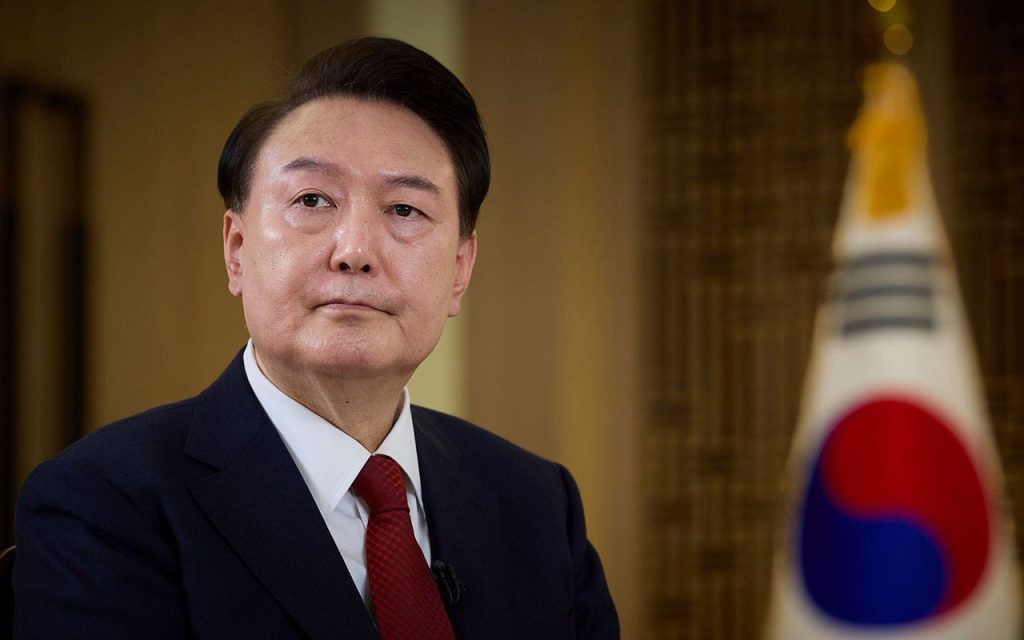The political landscape of South Korea is currently embroiled in a high-stakes drama surrounding the attempted arrest of suspended President Yoon Suk Yeol. Authorities launched a second attempt to detain Yoon at his Seoul residence on Wednesday, deploying a significant police force of 3,200 officers to navigate the complex situation. This action follows a previous failed attempt in early January, which resulted in a protracted standoff between military guards protecting the president and the investigators seeking to execute the arrest warrant. The president’s residence, a sprawling hillside estate, has become a focal point of the unfolding crisis, with Yoon remaining inside, surrounded by a personal security detail, while outside, throngs of his supporters have gathered to protest the legal proceedings against him. The scene is fraught with tension, as police attempt to navigate the crowds of supporters, raising concerns about potential clashes and further escalating the already volatile situation.
The central issue at hand revolves around Yoon’s controversial declaration of martial law last month, a move that triggered widespread condemnation both domestically and internationally. Yoon, seemingly frustrated by the opposition-controlled parliament’s resistance to his legislative agenda, resorted to the drastic measure, a move unprecedented in South Korea’s recent democratic history. This action immediately sparked alarm, with critics characterizing it as an authoritarian overreach and a threat to the country’s democratic norms. The international community, too, expressed deep concern, given South Korea’s established reputation as a stable and vibrant democracy in the region. The parliament swiftly and unanimously rejected Yoon’s declaration, subsequently voting to suspend him from office, a decision that received bipartisan support, including votes from members of his own political party.
The legal proceedings against Yoon have been complicated by a number of factors, making the execution of the arrest warrant particularly challenging. Yoon’s legal team has mounted a robust defense, arguing that the warrant is unlawful and constitutes a deliberate attempt to publicly humiliate the suspended president. They contend that the attempt to arrest him at his residence violates a law that prohibits non-consensual searches of locations potentially connected to military secrets. This legal argument has created a significant hurdle for investigators, who are tasked with enforcing the warrant while navigating the complex legal landscape and the potential political ramifications of their actions. The situation highlights the delicate balance between upholding the rule of law and respecting the sensitivities surrounding the presidency, even one under suspension.
Acting President Choi Sang-mok has emphasized the critical importance of avoiding physical confrontations between state agencies, underscoring the need for a peaceful resolution to the crisis. He has warned of serious consequences for those responsible should any unfortunate incidents occur during the ongoing attempts to detain Yoon. This statement reflects the gravity of the situation and the high stakes involved, with the potential for escalating tensions and violence looming large. The government is clearly treading carefully, seeking to avoid further destabilizing the country amidst this unprecedented political turmoil.
The arrest warrant against Yoon marks a historic first in South Korea, representing the first time a sitting president has faced such legal action. The warrant itself stems directly from Yoon’s ill-fated martial law declaration, which served as the catalyst for the current political crisis. The declaration, perceived by many as an overreach of executive power, triggered a swift and decisive response from the parliament, leading to his suspension. This rapid chain of events underscores the fragility of democratic institutions and the importance of checks and balances in preventing the abuse of power.
The fate of Yoon’s presidency now rests in the hands of the Constitutional Court, which is tasked with determining the legality of the impeachment motion. A three-fourths majority is required for the impeachment to be upheld, a decision that would formally remove Yoon from office. The court’s upcoming hearing is highly anticipated and will undoubtedly be a pivotal moment in South Korea’s political history. The outcome will not only determine Yoon’s future but will also have significant implications for the country’s political stability and its future trajectory. The eyes of the nation, and indeed the international community, are fixed on the court as it prepares to deliver its verdict in this landmark case.















